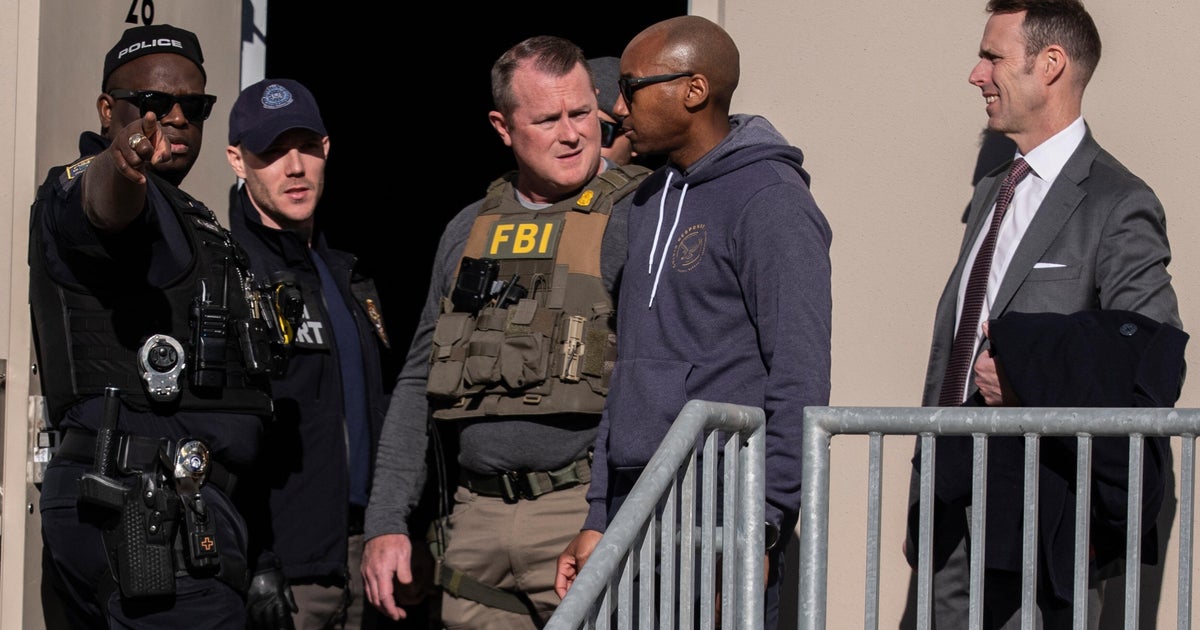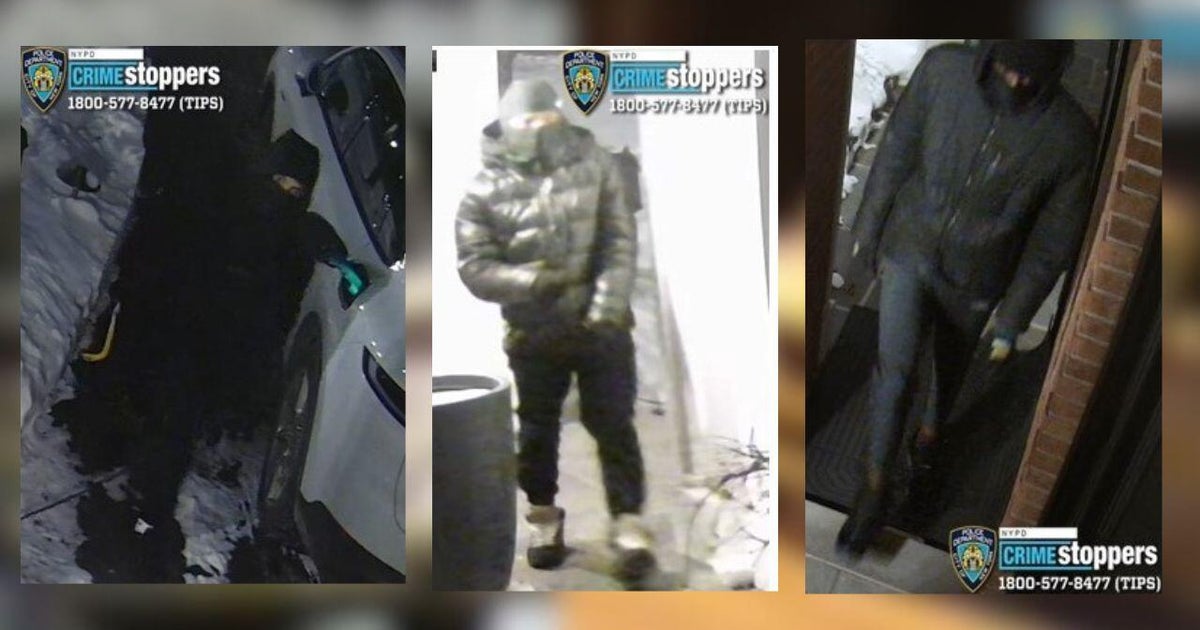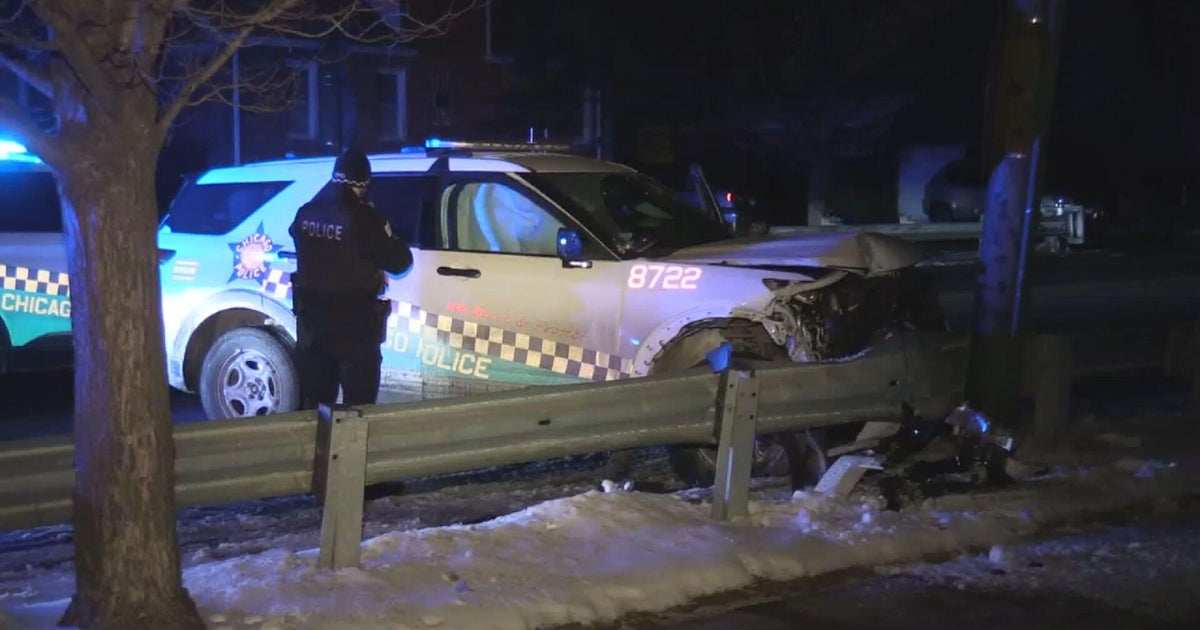Review: NYPD Body Camera Program Should Record More Stops
NEW YORK (CBSNewYork/AP) -- A body camera pilot program at the NYPD raised a wide range of questions about how to best monitor police and community interactions, according to a report released Thursday.
Inspector General Philip Eure's review of the program, which includes 54 officers in six high-crime precincts, comes as cities across the country grapple with how to legally and practically implement, store, access and eventually purge thousands of hours of footage.
"Our report – one of the most detailed of its kind to date – is the result of significant analysis of the NYPD's policies guiding this pilot program, coupled with extensive discussions we had with major players in New York City's law enforcement and oversight arenas and a review of what is working in other large police departments around the country," Eure said in a statement.
"The issues we raise mirror the concerns of citizens and those various police departments who continue to wrestle with the practical use of this new technology and its potential as a tool for furthering police accountability," the statement went on.
Review: NYPD Body Camera Program Should Record More Stops
The apparent effectiveness of body cameras has been demonstrated, most recently with the arrest of University of Cincinnati police Officer Ray Tensing. His body camera captured a video of him shooting Samuel DuBose to death during a traffic stop.
In an effort to improve policing and police accountability, the NYPD launched its body camera program in December. The department wants to expand to more than 5,000 cameras.
But the Office of the Inspector General pointed out several flaws, and issued nearly two dozen recommendations to the program -- including that more police interactions should be automatically recorded than currently are and the footage should be stored longer.
When asked if the NYPD was ready to expand the program as it stands now, Eure said no.
"The way that the operations order stands now, they're not ready to ramp up their program significantly until they get some of these policies right," he said.
The cameras "continue to spread rapidly across the country, and numerous organizations and advocacy groups have published reports and issued their own model BWC policies,'' Eure writes in the report, using an acronym for body-worn cameras. "However, with the potential benefits of BWCs come certain costs and concerns, including risks to the privacy and safety of both officers and the public.''
EXTRA: Click Here To Read The Full Report
But the report does address when a city police officer should even turn on the camera, suggesting more stops should be recorded than currently are.
"Right now, the NYPD in its orders says that officers are to use the reasonable suspicion standard. That means when the officer believes that someone is committing or has committed a crime, it's at that point in time when officers should activate the camera," Eure said. "We think that there should be a broader standard that includes all street encounters."
The report said the NYPD should broaden automatically recorded interactions to include "all street encounters or all investigative contacts'' and better define the kinds of interactions that would qualify, according to the report. Meanwhile, officers should be trained to know what situations they shouldn't record, including those involving victims of sex crimes.
The inspector general's review revealed a lot of confusion about the policy, WCBS 880's Irene Cornell reported.
"There was one officer who thought he could keep it on all the time," Eure said. "There was another officer who told us that he could only turn it on at the time of an arrest. Both are inaccurate understandings of the policies. We're not blaming the officers. To us, that means that the Police Department needs to do a better job in explaining the policy."
Another issue is whether officers wearing the cameras should verbally notify people who they're recording the interaction and be trained to use specific language, as happens in Chicago and Washington, D.C.
How often, and by whom, recorded stops are reviewed is also a subject of concern. Eure suggests that officers and citizens alike involved in complaints shouldn't be able to review the footage until after giving formal statements to investigators.
Similarly, police supervisors should randomly review footage to make sure it's being logged and recorded properly but shouldn't do so in order to discipline officers for minor violations, such as being out of dress code, he said.
The report is based on interviews with officers who wear the cameras, prosecutors, police supervisors and a review of policies in 20 other city police departments, including Phoenix, Los Angeles and Seattle.
Police reform advocates have called for more body cameras as a way to increase accountability and transparency in the wake of recent fatal police encounters.
The pilot program, detailed in an internal police order, is separate from a court-ordered body cameras program that resulted from a federal lawsuit over officers' use of the stop, question and frisk police tactic. That program, which will begin within a year, could involve as many as 5,000 cameras.
Eure recommends that the data be stored for 18 months, up from a year, to match the statute of limitations for filing charges by the independent police watchdog agency that investigates allegations of police misconduct. After that, the data can be purged, once the department comes up with a system of disposing with the footage.
For now, the NYPD only said it is reviewing the report and will continue working closely the Department of Investigation, and all interested parties as the department goes forward with the pilot program. The NYPD has 90 days to review the DOI recommendations.
Patrolmen's Benevolent Association President Patrick Lynch responded to the report, saying "Many serious concerns about the use of body cameras have been raised on both sides of the issue."
"Before any decision is made about their implementation in this city, the issue needs to be extensively studied," he said in a statement. "Cameras should not become another vehicle to make the job of policing any more difficult."
Other police departments around the Tri-State area have also started using body cameras.
The Freeport Police Department on Long Island, White Plains police in Westchester County and police departments in three towns in New Jersey are all using the technology.
A yearlong pilot program is underway for Nassau County police and officials announced earlier this week that all New Jersey State troopers would be equipped with body cameras.
(TM and © Copyright 2015 CBS Radio Inc. and its relevant subsidiaries. CBS RADIO and EYE Logo TM and Copyright 2015 CBS Broadcasting Inc. Used under license. All Rights Reserved. This material may not be published, broadcast, rewritten, or redistributed. The Associated Press contributed to this report.)







